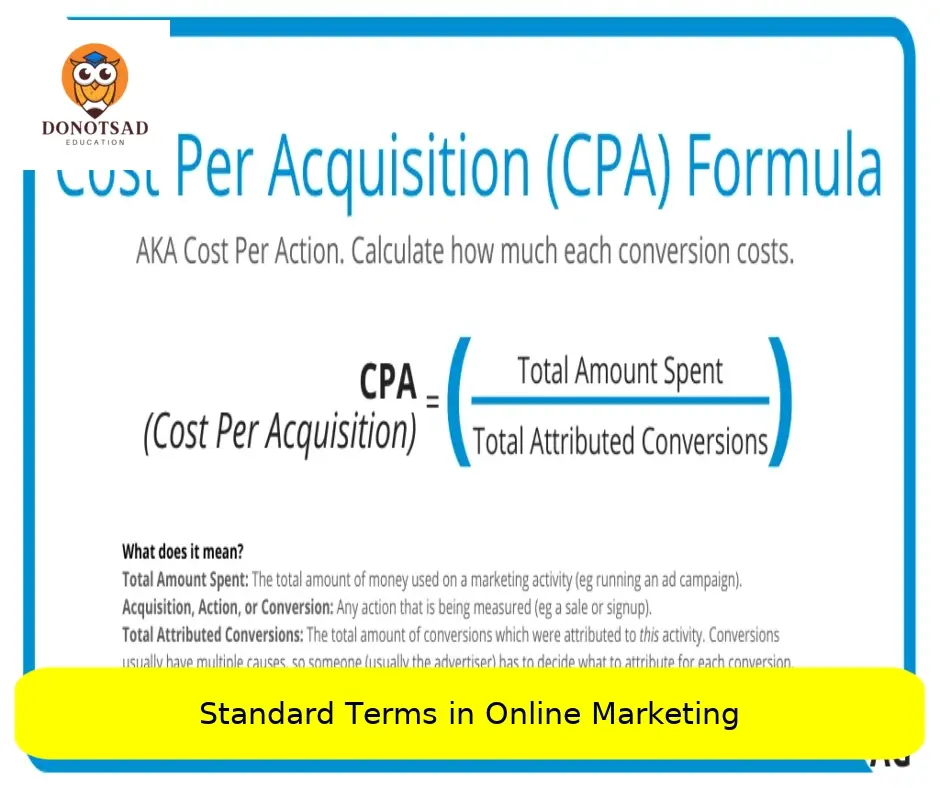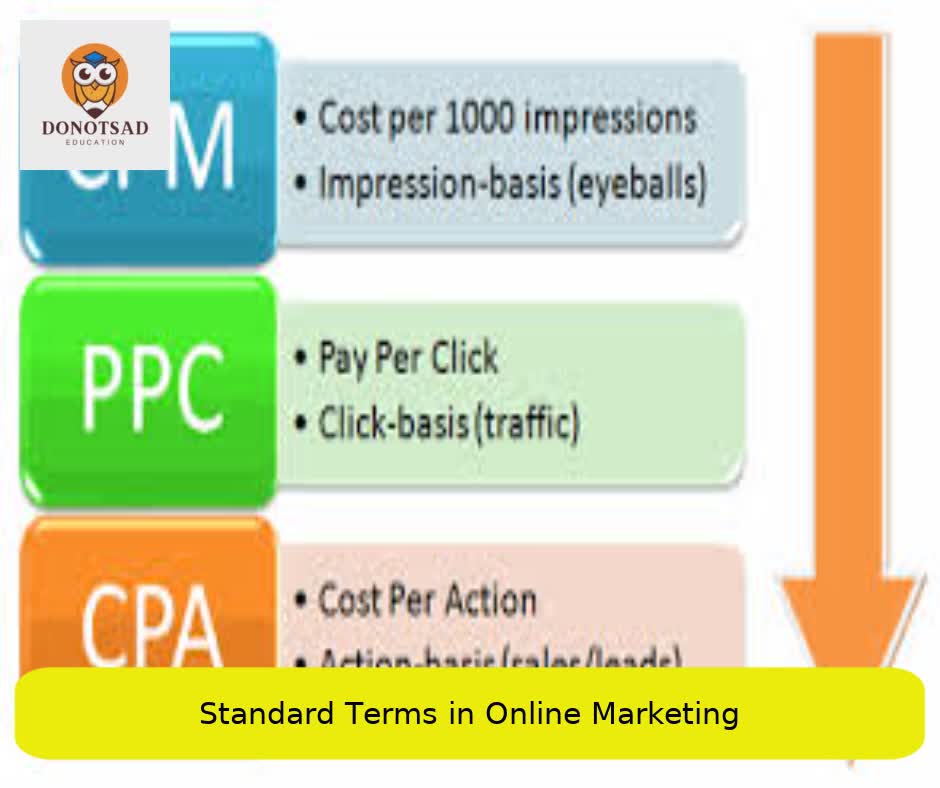Online marketing has its own unique vocabulary, with a wide range of specialized terms and concepts that are essential for anyone working in the field to understand. From the key players like advertisers and publishers, to important metrics like click-through rate and cost-per-acquisition, navigating the world of digital marketing can be challenging without a solid grasp of the industry lingo.
In this comprehensive guide, we will define and explain the standard terms used in the domain of online marketing. Whether you are a business owner looking to advertise your products and services online, a digital marketer crafting campaigns, or simply someone interested in the mechanics of e-commerce, familiarizing yourself with these common terms will provide you with a valuable foundation for success in the digital realm.

Here is a list of the standard terms used in the domain of online marketing −
Advertiser
It is a person or an organization that places advertisements to drive sale or lead through it.
Banner
It is an online advertisement in the form of a graphic image that appears on a web page.
Bid

It is the maximum amount an advertiser is ready to pay for a click.
Black Hat and White Hat Tactics
They both are the tactics of online marketing. There is no color significance about being good or bad.
- Black Hat Tactics are less pure and farther from search engine’s terms of service.
- White Hat Tactics of online marketing are closely bound to a search engine’s terms of service.
Breadcrumbs Navigation
It is a navigation scheme that reveals user’s location on the website or application. It offers a way to trace the path back to the user’s original landing point.
Campaign
It is a series of operations performed to achieve a desired goal in a particular area.
Click Through Rate (CTR)
Click Through Rate = Clicks / Impressions %
Conversion
A visitor when completes a target action.
Cost Per Acquisition (CPA)
It is the cost the advertiser pays only when a desired action is achieved.
Cost Per Click (CPC)
It refers to the amount the advertiser pays when his Ad is clicked on, giving him a visitor to his website − typically from a search engine in PPC marketing.
Cost per Mille (CPM)
It is the amount paid for every 1000 impressions of an advertisement.
Customer Pain Points
They are annoying, frustrating, and difficult to solve things or situations for the customer, which the customers may not have anticipated or cannot verbalize. They need urgent addressing.
If This Then That (IFTTT)
It is a web-based service with which the users can create chain of primitive conditional statements, called recipes. The recipes are triggered based on changes to other web services such as Gmail, Facebook, Instagram, etc.
Inbound Link
It is a hyperlink on a third-party web page that points to a web page on your website.
Key Performance Indicator (KPI)
It is a metric that shows whether an objective of the business is achieved.
Market Reach
It is the total number of people or households exposed at least once to a medium of Advertising in given span of time.
Paid Search Advertising
It refers to paid advertising on search engines, sometimes called PPC advertising. The advertiser pays only for each click on the Ad.
Publisher
It provides the advertisers a required amount of space on its website to publish the advertisement.
Quality Score
It is a variable that influences ranking of a website.
Search Engine Optimization
It is process of elevating website ranking in the unpaid results of search engine.
Tracking
It is measuring the effectiveness of an online advertise by collecting and evaluating statistics.
Web Indexing
It is the method of indexing the contents of the website or the internet as a whole.